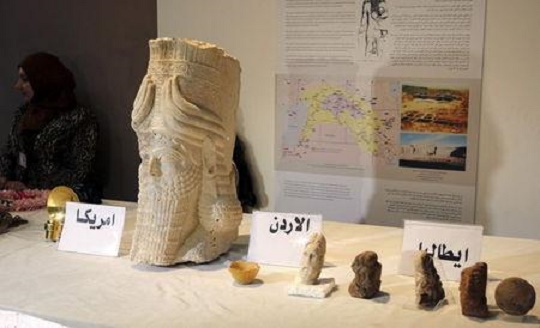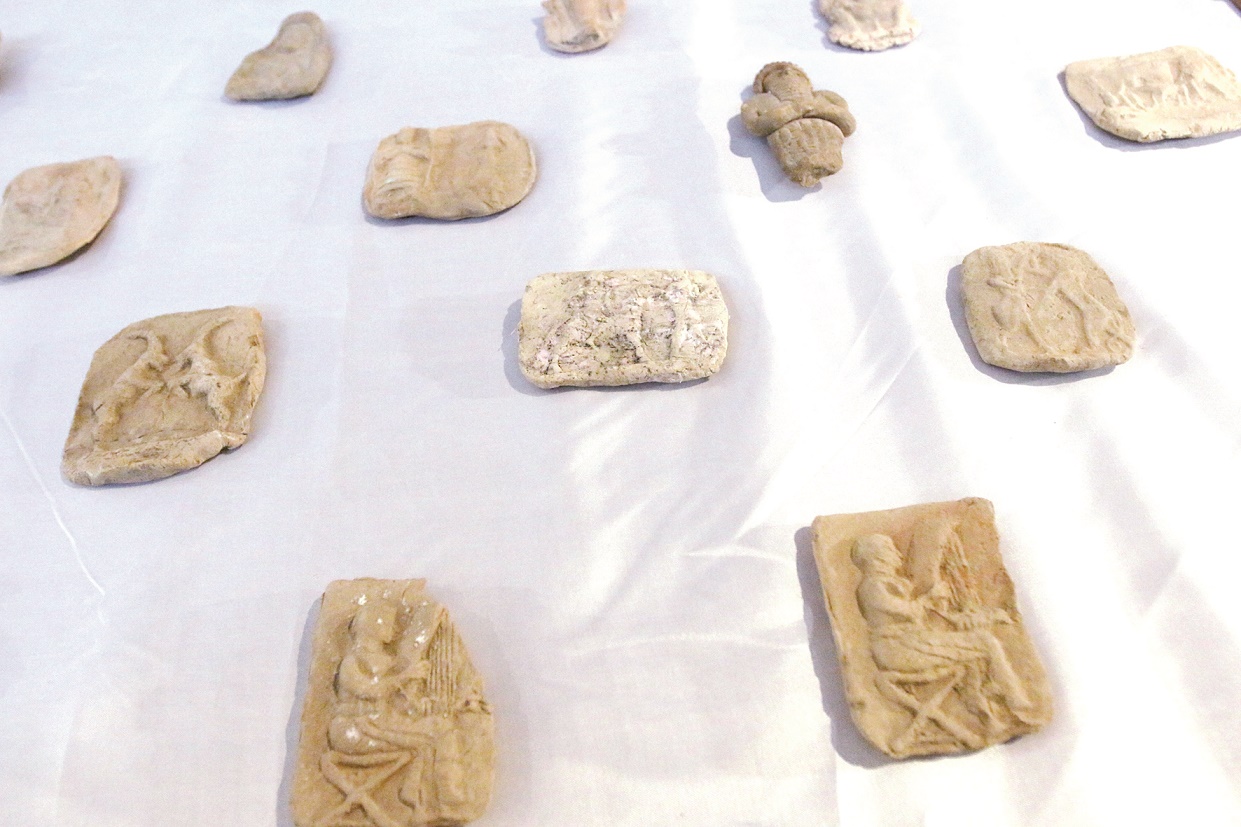
Iraq July 8, 2015 [Credit: Reuters/Khalid al-Mousily]
The recovery of the 800 items from museums, universities and auction houses in the United States, Italy and Jordan marks a small victory for Iraqi authorities struggling to protect their heritage from theft and destruction by Islamic State fighters.
The hardline Islamist militants have taken over some of the world's richest archaeological sites in northern Iraq, home to Assyrian cities dating back 2,700 years and the Graeco-Roman era desert complex of Hatra.
Videos released by Islamic State show several sites bulldozed, blown up or battered with sledgehammers. Officials say priceless antiquities have also been stolen to help fund the militants' self-declared caliphate in Iraq and Syria.

Iraq July 8, 2015 [Credit: Reuters/Khalid al-Mousily]
Wednesday's collection of returned items, put on show at Baghdad's national museum, was modest compared to the suspected scale of the ongoing theft and destruction.
It included dozens of metal spearheads which officials said dated back to Iraq's Sumerian era between 4,000 and 2,000 B.C., tiny vases, pottery seals and fragments with cuneiform writing.
Some had been identified when they came up for sale at auction houses. Others were recovered from long-term loans to universities abroad, officials said.

Iraq July 8, 2015 [Credit: Reuters/Khalid al-Mousily]
The collection included nearly 200 items that went missing from Iraq's presidential palaces in the turmoil which followed the U.S.-led invasion to overthrow Saddam Hussein, they said.
Alongside the white china tea set - each item marked with an eagle to represent the Iraqi republic - was a large ceremonial sword, silver cutlery and two rifles.
Government ministers attending a ceremony to mark their return called for greater international help to protect Iraq's antiquities, saying the scale of the threat was unprecedented.

Iraq July 8, 2015 [Credit: Reuters/Khalid al-Mousily]
Islamic State, which rejects all but its own narrow interpretation of early Sunni Islam as heresy, has destroyed ancient temples, shrines, churches, manuscripts, statues and carvings in territory it has seized. Officials say it has also looted widely, selling artefacts to fund its rule.
"We are not dealing with smugglers but a group that calls itself a state, carries weapons and trades in antiquities," Tourism and Antiquities Minister Adel Shirshab said. "The world must pay attention to the new danger".
More than three months after Islamic State fighters released video footage of them smashing statues and carvings at Mosul museum and the ancient sites of Hatra, Nimrud and Nineveh, Shirshab told Reuters it was hard to assess the damage.

Iraq July 8, 2015 [Credit: Reuters/Khalid al-Mousily]
"The region is under terrorist control. We don't have precise, detailed information...The situation is fluid and unclear.
Shirshab said that footage showing destruction at the sites was deliberately put out to obscure Islamic State fighters' real aim. "Many of these antiquities were stolen to fund this terrorist group," he said.
Author: Dominic Evans | Source: Reuters [July 08, 2015]